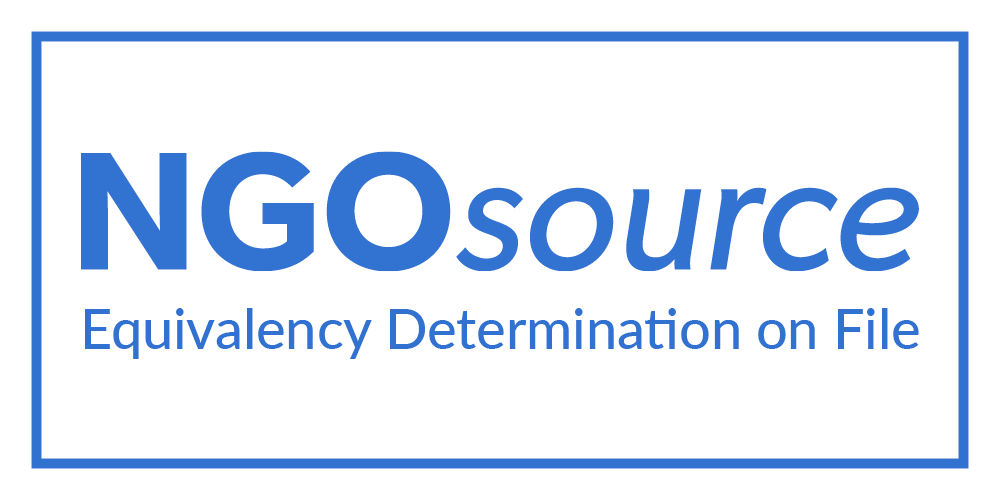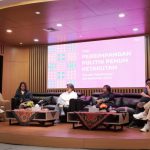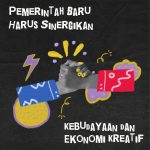Photo by: Koalisi Seni/Margaret Megan
On June 5, 2024, Koalisi Seni held a discussion on artistic freedom in literature titled The Literature is Like This, the Freedom is Like That at Ruang Serba Iya, Atelir Ceremai.
Koalisi Seni’s Research Coordinator, Ratri Ninditya, explained that out of a total of 197 cases of artistic freedom violations, 12 occurred in the field of literature. Some prominent cases include the censorship of Suara USU due to a short story with an LGBTIQ theme, the ban on a 1965-themed event at UWRF 2015, and the attack on an actor portraying Widji Thukul.
Aldiansyah Azura, a poet, actor, and program manager at Atelir, shared similar concerns about the restrictions on creative spaces addressing gender minorities or other sensitive issues. Many strategies must be carefully prepared when creating art or organizing discussions and events to avoid intimidation from various parties.
The situation is further worsened by the draft Broadcasting Bill (RUU Penyiaran), which has the potential to hinder the fulfillment of artistic freedom rights. Koalisi Seni has identified three main problems with the Broadcasting Bill:
- The establishment of a new censorship body that threatens artists’ freedom to create due to the expansion of duties and authority of the Indonesian Broadcasting Commission (KPI), shifting its role from mere oversight to regulating content and broadcast materials.
- The potential criminalization and silencing of artists due to the obligation of internal censorship to comply with the Broadcasting Code of Conduct (P3) and Broadcast Program Standards (SIS), which are based on subjective and ambiguous values such as religion, morality, and traditional customs.
- The shrinking of civil space due to the expansion of broadcasting regulations to digital platforms, which were previously limited to television and radio using public frequencies.
Read Koalisi Seni’s editorial opinion on the Broadcasting Bill here.
Ratih Kumala, screenwriter of Gadis Kretek, expressed her concerns regarding the draft Broadcasting Bill:
“As a screenwriter, of course, I have concerns. Here’s the thing—why did Gadis Kretek air on Netflix instead of television or the big screen? Just the smoking scenes alone would be censored. KPI already prohibits smoking scenes. They would blur everything. So, should it be renamed Gadis Kresek? That would be quite difficult.”
Writer and philosopher Martin Suryajaya observed a post-Reformasi trend in violations of literary freedom.
- During the New Order era, literary freedom violations were primarily state-driven, whereas in the Reformasi era, they are often carried out by mass organizations (non-state actors).
- Previously, violations were frequently linked to political ideology, whereas now they are more often related to morality, including issues like pornography and LGBT themes.
- Although the 1963 PNPS Law, which granted the Attorney General the authority to ban books, was revoked by the Constitutional Court in 2010, the government still often bows to pressure from mass organizations.
As long as the Broadcasting Bill has not been passed, it is time for artists and creative workers to raise their voices about the importance of artistic freedom. Identifying indicators of violations and collaborating or forming associations could be key strategies in facing these challenges.
You can visit kebebasanberkesenian.id to learn more about artistic freedom and report violations through the complaint service.
Written by: Amalia Ikhlasanti




